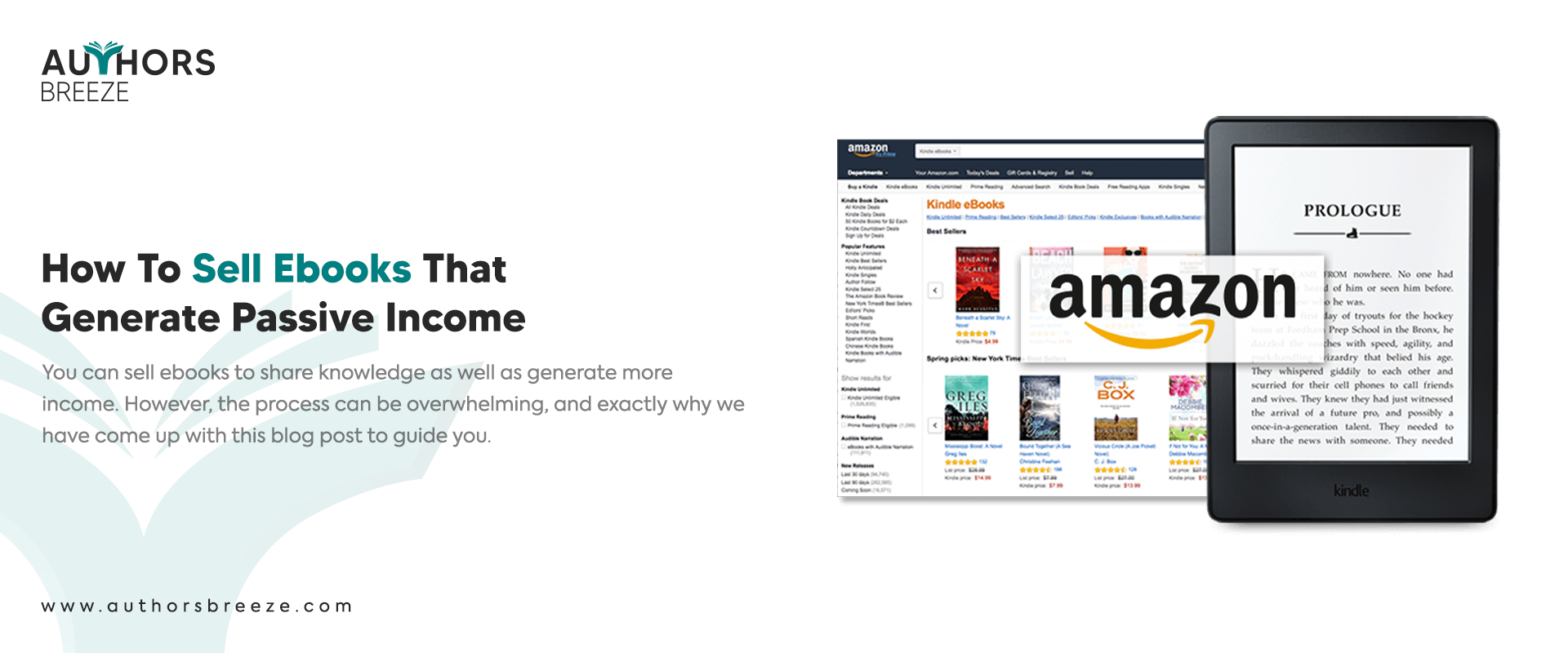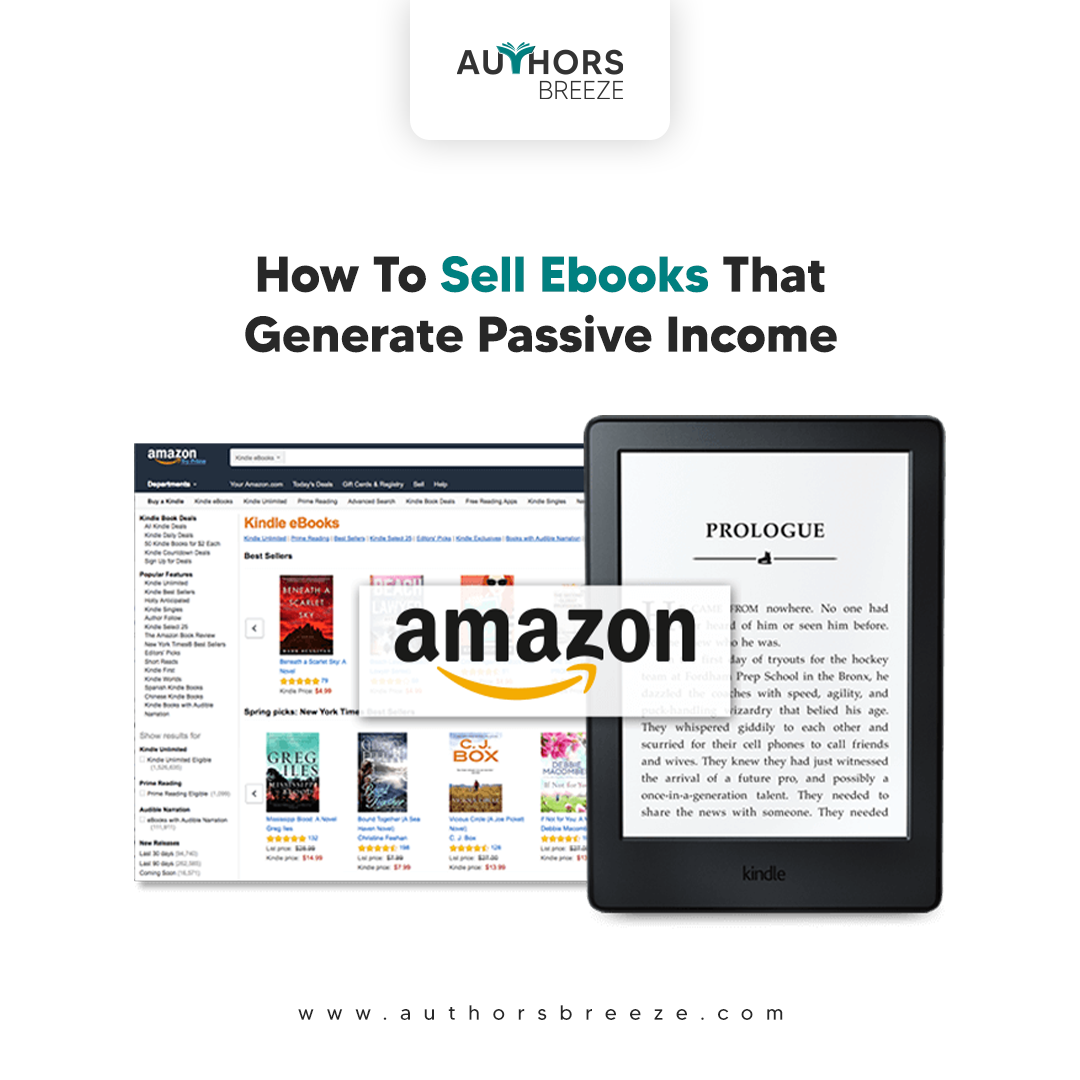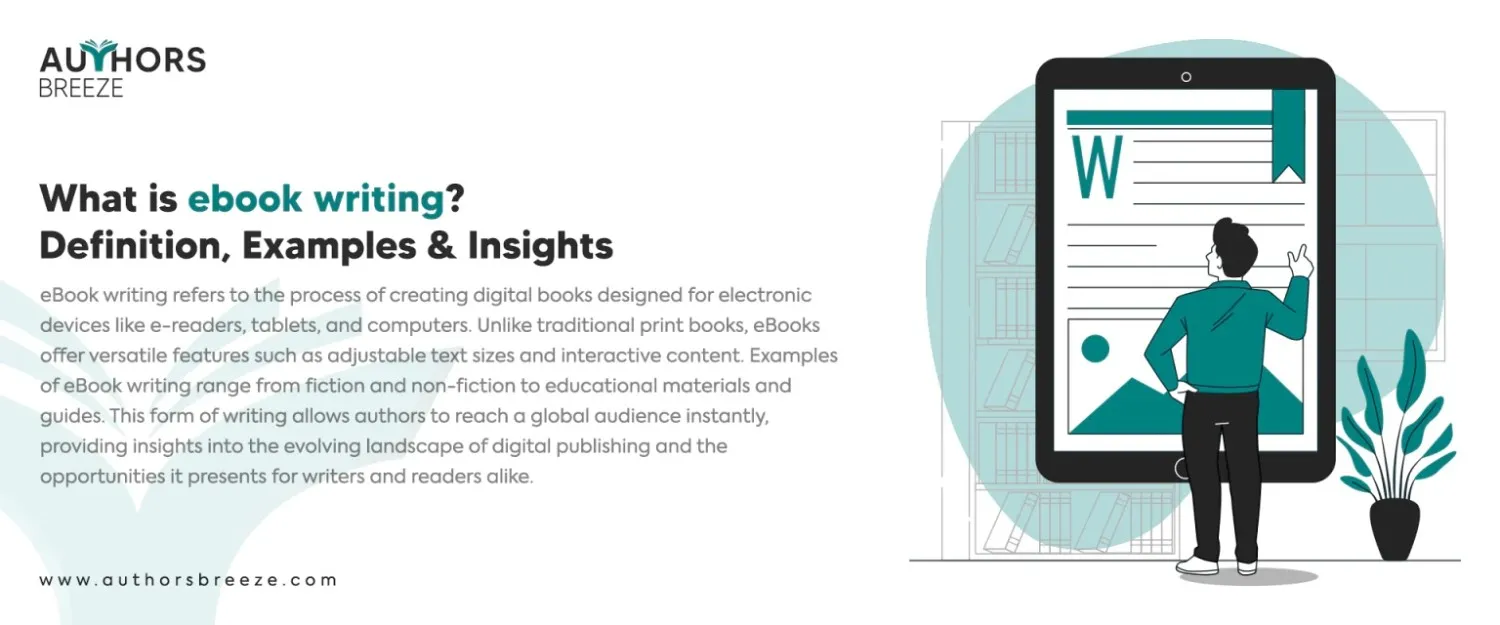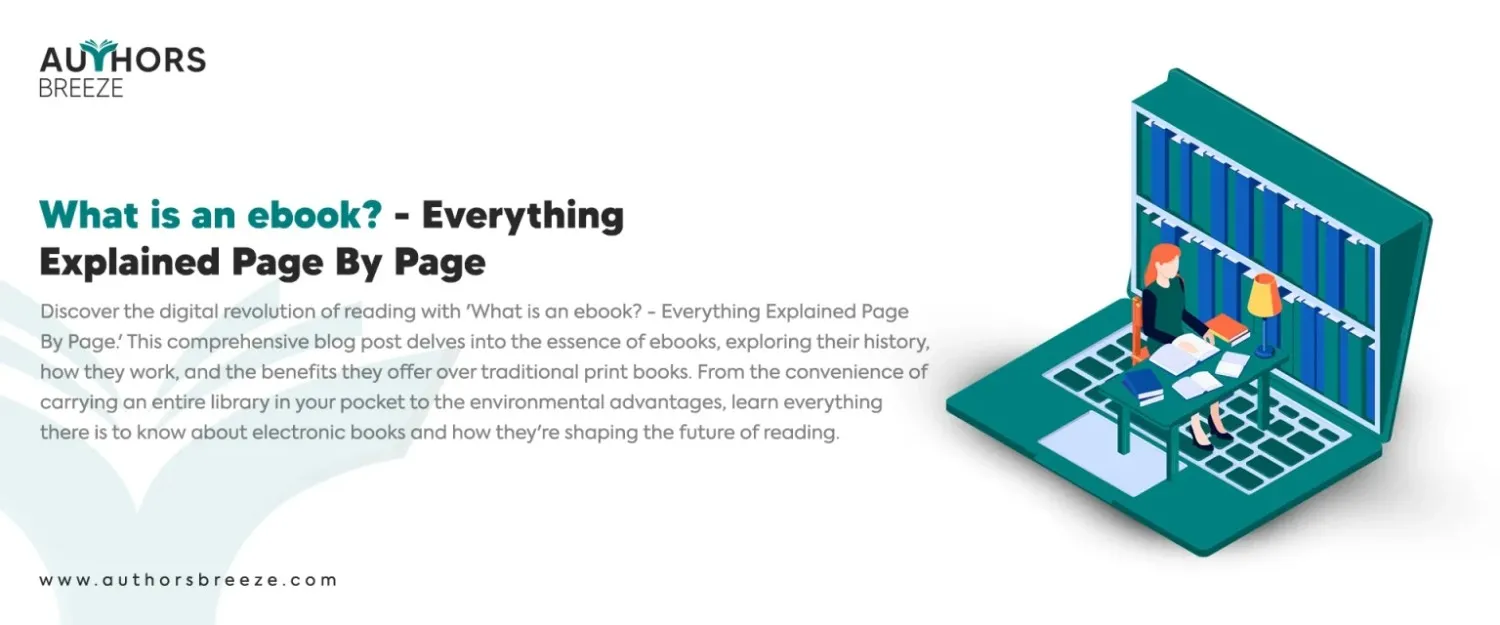Don’t Have Time to Read? Listen to this Article Instead!
Key Takeaways: How To Sell Ebooks?
- You can sell ebooks to generate income, share knowledge, and reach a global audience with minimal costs.
- Make sure you create an ebook that is market-ready and appealing to readers before you start selling it.
- To maximize your ebook's sales, understand your audience and select a unique topic.
- Write your ebook using a consistent style and tone.
- Refine your digital book by properly editing and proofreading it.
- Choose appropriate formats for your ebook based on your target audience and selected platform.
- Design a captivating book cover to encourage readers to download your book.
- Use digital tools to create and promote a worthy ebook.
- To generate more sales, sell your ebook on different platforms such as Amazon KDP, Gumroad, your own author website etc.
- Maximize your ebook sales by incorporating effective marketing approaches like running paid ads, leveraging social media, newsletters, etc.
Turn Your Knowledge Into Profits
Not sure how to monetize your work? Let our expert team help you write, design, and sell an ebook that transforms your expertise into income.
Introduction
In today's digital age, where information is readily accessible through technology, eBooks have become a go-to choice for readers worldwide, generating over $17 billion in sales in 2024. Thus, making ebooks a highly profitable way to earn passive income.
Whether you’re a writer, entrepreneur, or an expert, ebooks not only allow you to share your knowledge or build your brand but they also help you generate income effortlessly. However, success depends on the following:
- Creating a high-quality ebook,
- Choosing the right platforms, and
- Implementing effective marketing strategies.
That is why we've put together this blog post that will help you guide on how to create and sell ebooks that generate passive income. So, let’s get started!
Why Do People Sell Ebooks?
The ebook market is diverse. It has space for books of all shapes and sizes on any topic. Therefore, before moving to the “how,” let's explore the “why” first. The following are the reasons that make ebooks a worthy retailing option:
Low Overhead Costs
Unlike physical books, ebooks don't involve any production expenses, inventory management, or logistics. Thus, making it a cost-effective business with higher profit margins.
Passive Income Opportunity
An ebook can serve as a source of recurring revenue. So, after the initial effort of writing and publishing an ebook, you can actually continue to generate sales without any significant ongoing work.
Global Reach And Accessibility
You can sell your ebooks to a worldwide audience. Using platforms like Amazon KDP, Apple Books, and other online marketplaces, readers can effortlessly access your work from different parts of the globe.
Brand Building And Authority
Publishing an ebook allows you to share your knowledge on a specific topic, thus establishing you as an expert in your field. Additionally, it helps you build your personal or professional brand and achieve many worthy opportunities.
Creative Freedom
You get complete control over every aspect of your project. Whether it’s writing content or making effective book marketing strategies, you can customize everything you want according to your needs.
Sustainability And Environmental Impact
When you choose to sell ebooks, you contribute to a more sustainable world. Hence, with no paper, ink, or transportation involved, ebooks are an eco-friendly alternative to traditional publishing.
Do You Know?
“Nearly 21% of entire book sales are generated through digital downloads.”
How To Craft A Sales-Driven Ebook?
Before planning on retailing and monetizing your ebook, make sure you create one that actually sells. But how can you make one? Read below to gather information and craft an appealing ebook.
Pick An Interesting Topic
The first step in creating an engaging and sales-generating book is to select a topic that is unique and catchy. Try to write on a topic that's never been written or that's trending in the literary industry. So, write an ebook on a topic that has the potential to inspire readers to buy your book.
Create A Catchy Title
Next, generate a title that intrigues the readers to download your book. The title of your ebook should be creative and short, and it should also give a hint about the content of your book.
However, if you struggle with making catchy title ideas, you can seek help from various online tools available, such as:
Draft Your Book
Okay, so here comes the most difficult part: Writing an interesting book. This point seems quite obvious, but here we are talking about quality. As a writer, whether new or experienced, writing an engaging book is never an easy task. It requires a lot of effort, time, and out-of-the-box thinking all at a time.
However, don't let this distract from your goal. Create a detailed plan and follow it accordingly.
- Outline the main points of your book. Divide it into sub-sections, chapters, or headings to ensure a logical flow.
- Set a specific timeline for each section and try to finish it in the meantime.
- Write in a conversational tone. Use stories, examples, and visuals to keep readers engaged.
Additionally, if you don't see yourself as a creative writer, you can hire expert ghostwriters. They will help you draft compelling content for your ebook anonymously.
A Key Insight For You:
“If you are writing an ebook for the first time, start small. Ebooks can be of any length, so start with a shorter project to keep it simple, attainable, and also fun.”
Add Visuals (If Required)
If you are writing a non-fiction book, add the necessary tables and charts. It helps break down your text and make the information more understandable for the reader. This also helps your ebook look more professional.
In contrast, if you choose to write a fictional ebook, then putting images is not essential. However, you can add illustrations to some kinds of books, such as children's books etc.
Create Stories That Resonate
Want to craft an unforgettable ebook? Collaborate with our expert writers at Authors Breeze and write an ebook that your readers will love.
How To Prepare Your Ebook For Sale?
Edit Your Ebook
Now, it's time to proofread your ebook and make the necessary edits. Check your manuscript at least once by yourself and rule out mistakes, such as:
- Grammatical errors
- Incorrect or awkward phrasings
- Spelling mistakes, etc.
Always remember that your ebook is intended for sale. So, it should be of high quality and error-free. An ebook with mistakes loses its credibility and can negatively impact marketing strategy. To make sure your ebook is perfect, hire professional proofreading services. They will help you refine your manuscript like never before.
Format Your Ebook
Your ebook design plays a crucial role in its success. So, use formatting tools like Canva and Adobe InDesign, or seek help from skilled book formatters to make sure you format your book in a way that’s easy to understand and also visually appealing. Correct formatting includes:
- Choose simple and professional fonts and maintain consistent styling.
- Keep the font size 11 or more. Font sizes below this range can make readers struggle while reading.
- Break down large paragraphs into smaller sections, headings, or lists. This helps increase the readability of the content.
Make sure you choose the right format for your ebook. The most common ebook formats are:
- EPUB: It is the standard format for ebooks and provides broad compatibility across various devices.
- MOBI: This format is specifically designed for Amazon Kindle devices and apps.
- PDF: It has a fixed-layout format and is ideal for maintaining design across all devices.
Design A Convincing Book Cover
Okay, so we all have listened to the phrase, “Don't judge a book by its cover.” But in reality, people do. Whether it’s an ebook or a printed book, the first thing that catches the reader’s eye is the book cover. Use design tools like Canva or acquire book cover design services to create a unique book cover that includes the following:
- High-quality images and visuals.
- Contrasting colors for text and background.
- A clear, attention-grabbing title font.
Key Tip:
“Always use fonts and images that are licensed for commercial use to avoid copyright problems.”
Which Platforms Can You Choose To Sell Your Ebook?
There are numerous platforms you can use to distribute your ebook. However, the most common ones are Amazon KDP and your own author's website.
Amazon Kindle Direct Publishing (KDP)
It is a famous platform where you can sell ebooks worldwide and earn 35% to 70% of royalties. Amazon KDP also offers various tools to track your sales and performance and helps you grow your audience and income.
How To Sell Ebooks On Amazon KDP
- Make an account on Amazon KDP to upload and publish your ebook.
- Format Your ebook in the correct format, such as in EPUB or MOBI.
- Write a catchy book description.
- Pick the right categories for your ebook, and use relative keywords to help people find your book.
- Check prices of similar books and set a competitive price for your ebook.
- Use tools like Kindle Unlimited, discounts, or free promotion days to get more visibility and sales.
For more info read: How to Sell an Ebook on Amazon: Skyrocket Your Book Sales
Your Personal Author's Website
Selling ebooks on your website gives you complete control over sales and profits. You can set your own prices and offer special promotions to attract buyers.
How To Sell Ebooks On Your Personal Website
- Create a simple, user-friendly website using Shopify or Wix.
- Design a cover page with a clear description and call-to-action buttons.
- Offer secure payment options like PayPal or Stripe for easy and safe transactions.
- Use different marketing tactics and SEO to drive traffic and reach your audience.
Sell Your Ebooks, Your Way
Need higher profits and more creative control? Seek help from our skilled website designers and get the freedom to sell and promote your work on your terms.
Other Platforms That You Can Choose
Smashwords
It helps you sell your ebook easily on multiple platforms like Apple Books and Barnes & Noble. Additionally, it converts your manuscript into various ebook formats and offers free ISBNs.
Gumroad
It is Ideal for niche content creators because it's simple to use. It doesn't require any upfront costs and provides built-in email marketing, allowing readers to pay what they want for your ebook.
Google Play Books
Great for reaching Android users with no exclusivity rules, allowing you to sell elsewhere, too. It offers region-specific pricing and visibility within Google’s ecosystem.
How To Promote Your Ebook?
Even the best ebooks won't sell without marketing! Yes, you read it right. No matter how you choose to sell your ebook, just make sure you market it well. Make an effective ebook marketing plan on your own or acquire help from expert book marketing services because successful promotion is the key to increased sales. Here's how you can promote your ebook online in the best ways possible:
Run Email Marketing Campaigns
Email campaigns are a powerful way to promote your ebook, especially if you've built a loyal email list. Use email marketing services to set up targeted campaigns and keep your readers engaged and excited about your ebook.
Utilize Social Media
Various social media platforms such as Instagram, Twitter, and LinkedIn can be used to share engaging content about your book. It might include:
- Snippets from your ebook
- Reader testimonials
- Special promotions
By doing so, you can create awareness and build a loyal following, driving traffic to your ebook sales page.
Running Paid Ad Campaigns
Use paid advertising to target readers who are most likely to be interested in your ebook by using the following platforms:
- Facebook Ads
- Google Ads
- Amazon Ads
Also, read our blog: Amazon Ads for Authors: Skyrocket Your Book's Visibility
Sell Ebooks In Other Formats
Another effective way to boost your ebook sales is by offering it in multiple formats. For example, you can sell ebooks as audiobooks on Amazon or other platforms. It will help readers select their preferred choice.
Collaborate With Influencers
Request bloggers and social media influencers in your niche to review your book. It’s because their trusted recommendations can boost your ebook's visibility and credibility and can help you reach a wider audience.
Key Tip:
“Use web analytic tools like Google Analytics to keep track of your ebook's sales.”
What Types of Books Can You Sell Online?
You can sell almost any type of ebook online. However, some of the popular categories are as follows:
Non-Fiction
- Self-help (e.g., “How to Build Confidence”)
- How-to guides (e.g., “Beginner's Guide to Gardening”)
- Business and finance (e.g., “Investing for Beginners”)
- Health and fitness (e.g., “Yoga for Stress Relief”)
Fiction
- Romance novels
- Mystery and thriller stories
- Science fiction and fantasy
- Short story collections
Educational
- Study guides (e.g., “Math for High School Students”)
- Language learning (e.g., “Spanish for Travelers”)
- Skill development (e.g., “Learn Coding in 30 Days”)
Specialized Topics
- Cookbooks (e.g., “Quick Vegan Recipes”)
- Travel guides (e.g., “Top 10 Destinations in Europe”)
- Hobby guides (e.g., “Photography for Beginners”)
Children's Books
- Picture books
- Educational books (e.g., “ABCs for Toddlers”)
- Fun storybooks
“Always remember, the key is to choose a topic you're passionate about and that has an audience.”
Conclusion
With the digital book market growing every year, now is the perfect time to sell ebooks. So, utilize your ideas, create an excellent digital book, and sell it to make money online. Whether you're an experienced writer or someone who is writing for the first time, just pick a unique and exciting topic, utilize appropriate tools and platforms, and turn your ebook into a global success.
Besides, if you get stuck at any step of the process, seek help from Authors Breeze's expert author services and craft an ebook that readers will love and generate money!
FAQs
How much does an ebook cost?
The price range of an ebook typically depends on its genre and content. However, its average cost is between 2.99$ and 9.99$.
What is the ideal length for an ebook?
The length of an ebook varies widely. However, in general, short ebooks consist of 20-50 pages, while longer ones usually contain 100 pages or more.
Do I need to copyright my ebook?
Yes, because it protects your intellectual property and prevents its unauthorized use or distribution.
Craft, Polish, Publish. All in One Place
Not sure where to start with ebook writing and publishing? Partner with us and get everything from writing and formatting to publishing and marketing, all under budget







